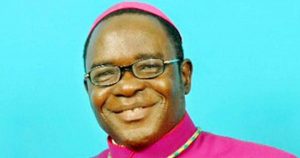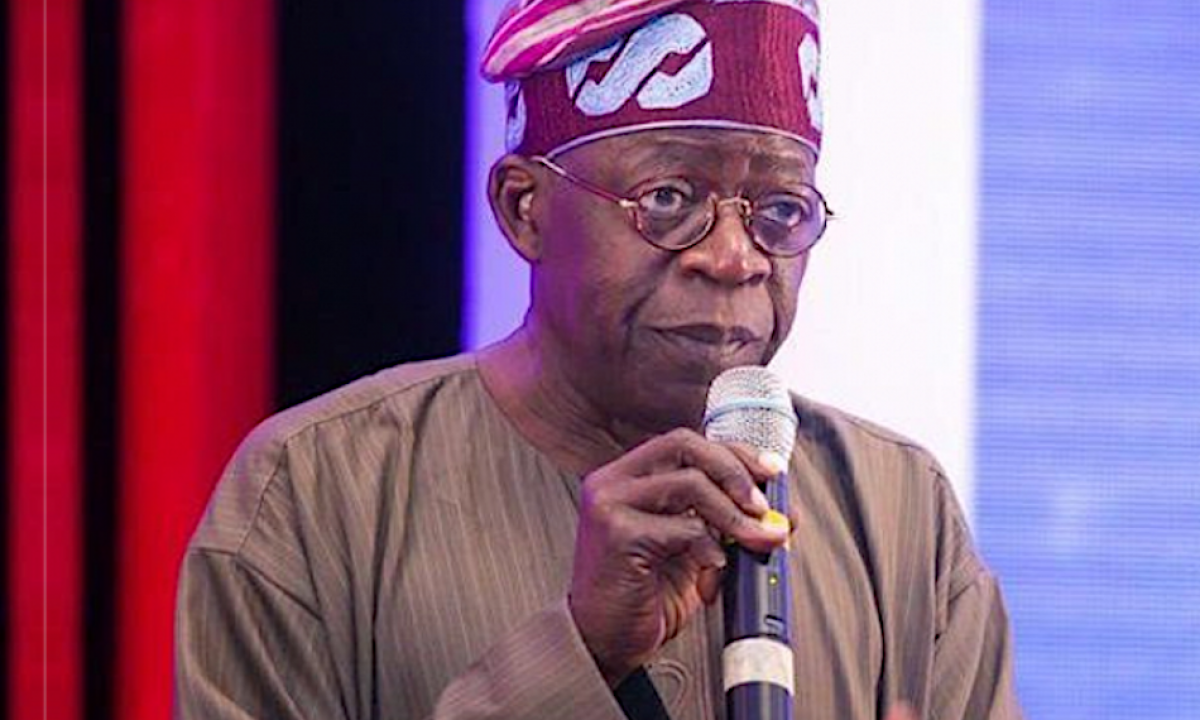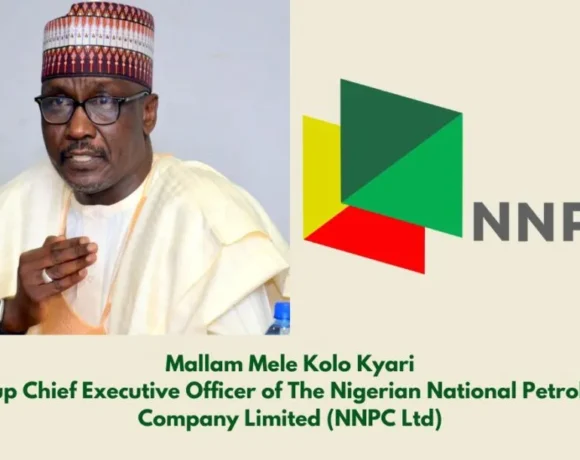Kukah Raises Queries on Christianity and Politics
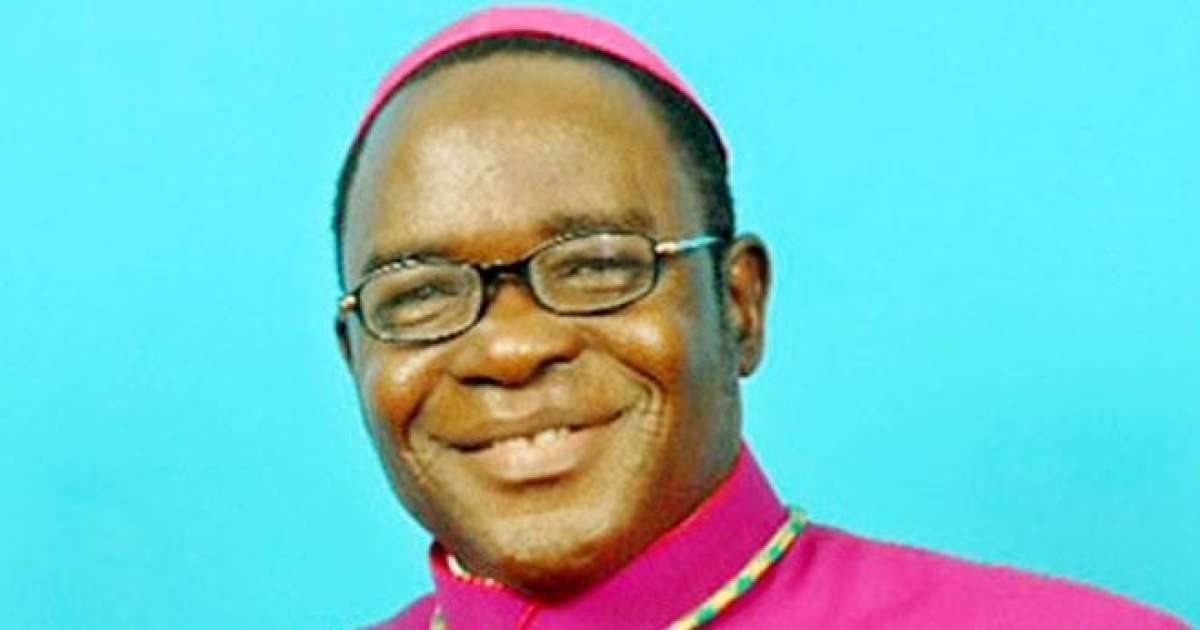
The Trying Triangle of Politics, Economy and Faith: Through the Eyes of the Needle
By Matthew Hassan Kukah
1. Preamble
In your letter of invitation to me, you requested that I speak on what you called, The Trying Triangle of Politics, Economy and Faith: Through the Eyes of the Needle. In more plain language, this lecture could be titled, Religion and the Political Economy of Nigeria or Religion, Economy and Politics in Nigeria. To avoid further speculation as to intent, let me simply stay with the title you have proposed and proceed to explore the issues in the way that I see and understand them. I am sure you know very well that on these issues, and for very practical purposes, we
will have divergent views. It is in the nature of religion, especially in plural societies, to generate divergent and conflicting views regarding perceptions, definitions and interpretations. This is not a weakness and should be understood as part of the dynamics of life.
Religion is an emotive issue even at the best of times. The diverse ways in which people interpret and contextualise the sacred texts in relation to personal and community life is always bound to create conflict. A few examples of what I am talking about will suffice.
Among the disciples of Jesus, there was no agreement as to what his mission was. We might all consider Judas and his betrayal of Jesus as the highest expression of this conflict in perceptions and visions. The message that Jesus preached was so often out of sync with the normal life experiences of his listeners. He asked them to forgive and even pray for their enemies (Mt. 5:4). He said if you are slapped on one cheek, turn the other (Lk. 6:29) He said if you want to follow him, you must leave everything behind and carry your cross (Mt. 16:24). The mother of the two brothers wanted seats at the table for her children because she visualized an earthly kingdom (Mt.20: 21). After the miracle on the high seas, the apostles, asked, what manner of man is this that even the seas obey him (Mt. 8:27). We can go on and on, but I merely wish to illustrate the fact that if these people who were in the presence of Jesus could have these conflicting views and understandings of the message and the messenger who was right in their midst, how much more will our own predicament be?
I am making this point to help you anticipate the fact that there will be no one normative Christian view of the iss
ues that we wish to address. This is not because there is no clarity in the message of Christ. It is rather as a result of the divergences in the cultural, social and ideological, views of the world into which the message of Jesus was and still is being preached. For example, I am a Catholic Priest, the Chairman of this occasion is a Baptist. What the Catholic Church and the Baptist Churches teach about some of these issues may not be the same as what the Four Square Gospel Church teaches. And what we preach on these issues may not be the same with what the latest Pentecostal Church founded yesterday preaches today.
2. Religion & Politics: Caesar and God
There are Christians who believe that whatever cannot be traced to the Bible cannot be validated. They believe that they must search the Scriptures and what is not found in the Scriptures does not warrant our attention. In this way, these people misappropriate, misapply, mislead and misdirect others in their dealing with both God and each other. It is of them that Jesus said, rather than drawing inspiration from around, You look into the scriptures, thinking that in them you will find life, yet scriptures bear witness to me (Jn. 5: 39). These people will painstakingly look for and quote (misquote) what they consider the relevant verses to guide our engagement with political or economic life.
For example, those who hold the view that there is a clear separation of religion from politics enshrined in the Scriptures turn to their favourite text which is in Matthew 22: 17-22. Over the years, so many people have read this text in isolation and focused on it as the source of inspiration and guidance over whether or not Christians should participate in politics. They are quick to jump to verse 22 where Jesus said: Render to Caesar what is Caesar’s and to God what belongs to God.
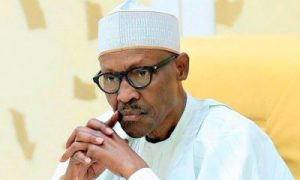
The perennial question of the relationship between what is owed to Caesar and what is owed to God is a complex one. But the underlying principle should be clear: God and Caesar cannot be entirely separated; reason and religion need each other and hence, so too do politics and religion. Religion and politics are distinct realms but they are of themselves intertwined. They must not be married as though they are one, but nor must they be divorced. The Catholic Church, in its great body of Social Teaching, has always held that as people of faith we are obligated to participate in all political and social affairs so as to promote the common good, holding at all times dual citizenship, citizens of both the church (faith community) and of civil society.
For the purpose of proper analysis, let us step back a bit, using the same textual evidence contained in the conversation in the Gospel passage in Matthew 22. First, if we go back to verse 15, we are told that: The Pharisees went away, considering how to trap Jesus by His own words. Let us remember that these are the Pharisees, those whom Jesus called, hypocrites, notorious for their long prayers which they recite as a show, those who devour the properties of widows, those blind guides, those who wash the outside of the cup while the inside is dirty, those who are like whitewashed tombs, beautiful on the outside but unclean inside, those vipers, who wear beautiful bands of scripture around their foreheads, and well-designed spiritual clothing on the outside. From this text, we can appreciate the nature of the kind of gulf that lay between Jesus and the Pharisees who had set this trap. The Pharisees were so obsessed with the law that they themselves said that they wanted to trap Jesus by his own words.
The Pharisees exhibited their hypocrisy by wrapping it in falsehood. Rather than confront Jesus themselves, they sent their own disciples who, on approaching Jesus, extended the length of this hypocrisy by saying: We know that you are an honest man and truly teach God’s way. You are not influenced by others, nor are you afraid of anyone (v16). On the surface, you would say that if these people really believed what they were saying, then, naturally, they would be the followers of Jesus straight away.
However, these were hypocritical praise singers who believed in nothing but their own voices of lies. We are all familiar with them in Nigeria and this period of politics is their bazaar. Their words are akin to the praise songs of those beggars who gather around, those who believe in nothing, those whose flexible knees have been oiled by the proceeds of corruption, those who would kneel for a snake that has just swallowed some millions of naira and ask, Ranka dade, High chief, Dr, Omoba, Baba, Na you biko, Anything for your boys?
We are told in the text that Jesus understood the evil intentions of these Pharisees and said to them: Hypocrites, why are you trying to trap me (v18). It is clear from the language on both sides that this was a gladiatorial encounter between darkness and light, hypocrisy and truth. Jesus was not going to use the opportunity to teach because He knew that these were people whose minds were closed by prejudice and that they belonged to those that St Paul would have referred to as; men with hardened hearts and closed ears (Acts. 7: 51).
So, when Jesus said they should render to Caesar what belongs to Caesar and to God what belongs to God, He was responding to the logic of their question. The coin had the imprint of the face of Caesar on it as an expression of his authority over his domain and its citizens. To push the question further, we need to ask, whose image or face does Caesar possess? To answer this question, we have to return to the book of Genesis where we are told how man was created in the image and likeness of God. From here, we can deduce that since Caesar was created as a human being in the image and likeness of God, both he and his creation, the coin, come directly under God’s jurisdiction and subordination. Consequently, we can only conclude that politics and economics, the human activity which Caesar and his coin represent, should be undertaken as an activity under the authority of God. So, if we are looking for a divine appeal as to how a Christian is to act and conduct himself or herself in the political arena or the Stock Exchange as a child of God, this is the place to look! Therefore, politics, governance and economic activities for the Christian should become an offering to be made to God. The text is therefore a call to the sanctification of every form of human activity to the glory of God and the good of all people and all creation, not its separation as has been mistakenly popularized.
3. Religion & Economy
As with politics, there are no simple prescriptions and I repeat what I said earlier, namely that even within Christianity, different faith traditions will respond to these issues differently in their interpretations. Although many Christians have tried to find Biblical direction for what our role should be in economic life, I argue that there are no prescriptions that anyone can make beyond insisting that central to all of these is the need for the common good to be sought within that particular context. Again, the Catholic Church through its social teaching is in the forefront of calling for economic justice, promoting and advocating always the principles of solidarity and subsidiarity, insisting on the responsibility of all people, and especially those in power, to seek the promotion of human dignity and the common good and allow the participation of all people in the determination of civic affairs.
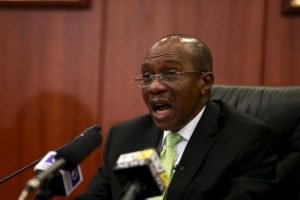

It is helpful also to look back at history in order to see where we can learn lessons. In the name of God, wars for empire building have been fought and to a great extent are still being fought today. With globalisation and the quest for domination, these wars have become more sophisticated. For example, in the fight against terrorism (read, oil), it was curious to watch both President Bush and Osama Bin Laden invoke God on their side. When Queen Isabella of Spain sent out Columbus on his journey of exploration, or when Great Britain embarked on its empire building around the world, it evoked the name of God. Even one of our illustrious sons, Bishop Ajayi Crowther, was summoned to fulfill God’s mission and extend the frontiers of empire! I will return to this.
It is important to note that the essence of the appropriation of religion to politics is largely a self-serving quest for naked and raw power whose limits and boundaries are only drawn by the powerful nations and individuals as the times dictate. Whereas in colonial times, empire builders used individuals, bandits, pirates, chartered companies to create monopolies and controls of local resources, today, the same strategies are employed only in more veiled mechanisms.
Today, in the economic lives of developing nations, multinational corporations hold sway and so-called sovereign local national economies are only so by name. The politics of developing nations is today at best characterised by variations in the theme of puppeteering. Our politics have no indigenous foundation. All we have done is to decide on which of the foreign systems to perch. We experimented with the British parliamentary system, dropped that and picked up the inherently expensive and sophisticated American Presidential system in garb but not in reality. The toxicity in our politics where participation has become the shortest cut to suicide has meant that, in many respects, the game has become at best a dance in the forest of death.
This is the backdrop around which Christians in Nigeria must make their choices in terms of economic activity. If we are to look to the Gospels for guidance as to how to conduct our economic activities, we will have to step back a little and ask many questions. Let us take ten examples:
• What kind of inspiration will we hope to draw from Jesus who was born in a borrowed stable?(Lk. 2: 12).
• What kind of inspiration will we draw from a man who said he had nowhere to lay His head? (Lk. 9: 58).
• What kind of inspiration will we draw from a man who said that to be poor is a blessed thing? (Mt. 5)
• What kind of inspiration can we draw from a man who went around with no spare clothing but one seamless garment? (Mt. 27: 35).
• What kind of inspiration will we draw from a man who stormed the stock exchange and beat up everyone for desecrating the temple? (Mt. 21: 13)
• What kind of inspiration do we hope to draw from a man who asked His followers not to travel with money or even a spare pair of shoes? (Lk. 10:4).
• What kind of inspiration do we hope to draw from a man who, to meet his obligation to the FIRS of his day, resorted to a fish as His bank? (Mt. 17: 27)
• What inspiration should we hope to draw from a man who had to borrow a donkey to ride to glory? (Lk. 19: 28ff)
• What kind of inspiration do we hope to draw from a man who had to borrow a room from someone else to eat His most important meal? (Lk. 22:10).
• What inspiration do we hope to draw from a man who, even at death had to rely on someone else to loan his body a tomb? (Mt. 27: 57ff).
To be sure, Economy and Finance are not exactly the same thing in the same way that perhaps, Petrol and a Car are not also the same. Economy is an activity propelled by financial and other forms of transaction, in the same way that a Car is put into motion by petrol. In both cases, one reinforces the other.
The creation of financial institutions and systems, the developments of Capitalism or Communism, were largely human efforts at making life better. We cannot look to Jesus to help us choose between these ideological systems in terms of which one is better, if any, since these represent the prescriptive enclaves of world ideologies that have been spawned over time. The message of Jesus does not constitute any world ideology, whether economic or political ideology; rather his messages was and is a moral call to change our ways, a regulatory moral compass, pointing to our actions and their consequences on our society, in all the diverse moments of human history. Let us take two examples.
First is the case of the rich young man in Mark 10. As we hear in the story, again, it was largely a trap being laid for Jesus by the young man. He starts off by greeting him: Good master, what must I do to inherit eternal life? (v17). Jesus starts off by asking him to keep the Commandments of God. Obviously, blinded by wealth and pride, he tells Jesus: I have obeyed these commandments since my childhood (v20). This arrogant lad is showing some traits that we should be familiar with. First, he is a young man and in an agrarian society of the time, he could not have been rich through his own efforts because freewheeling, profit making capitalism was not prevalent in the society. The only conclusion we can come to is that this young man inherited his wealth! Filled with pride, what he really was asking Jesus was, how much will it cost to buy my way to heaven? Jesus ignored his self-righteousness and makes a demand that the man probably considers demeaning: If in truth you want to follow me, sell everything and, (wait for it), give the money to the poor. His claims to righteousness collapses and we are told: On hearing this, his face fell and he went away sorrowful (v22). Here we have a perfect example of what we see in the film called, Wall Street, where the lead actor, Michael Douglas delivered his famous, amoral, Greed is Good speech.
There is also the story of what the Bible calls, the rich fool. The story is told in Luke, chapter 12. Before this story is that of the two brothers, one of who, having been cheated by his elder brother, requests that Jesus arbitrates between them. Jesus responds by saying: Be on your guard and avoid greed of every kind, for even though you have many possessions, it is not that which gives you life (15). In the second story, Jesus tells us of the man with the rich harvest. He has had such a rich harvest that he decides he will pull down his barns and build new ones as an insurance. Jesus condemns him and tells him again that his material wealth is an obstacle to the kingdom of God. We can go on and on, but it is now time for us to turn our attention to the realities around us in Nigeria. By way of summary, I will revisit the points I have made and pose some challenges for us as Christians.
4. Summary and Conclusion
Let me repeat again what I have tried to illustrate above, namely, that due to our differences as Christians, I cannot make a dogmatic prescription for you or anyone for that matter. For example, apart from the Holy Bible and the rich tradition of Catholic Social Teaching among much else, the Catholic Church has the Code of Canon Law which, along with the Catechism, has laid down laws and instructions for Catholics in all aspects of faith. Whereas for example, other Christian clergy can participate directly in partisan politics, the Code of Canon Law does not allow a Catholic Priest or Religious to participate in active politics. The Law specifically states (Canon 285(3): Clerics are forbidden to assume public offices which entail a participation in the exercise of civil power.
The Priest who infringes that law ceases to act as a pastor for a designated Church and cannot function publicly as a Catholic priest. He remains a priest and could be welcomed back to the Catholic Church and his sanctions lifted but he must meet certain disciplinary conditions and renounce the position he occupies. Of course, as a citizen, he is free to exercise his rights including his responsibility to make known and promote the social teaching of the Church as a voice and advocate for justice in society. I thought I should make this point to draw attention to the fact that I am not making a prescription for clerics across the board or even all Christians.
St. Pope John Paul II of blessed memory gave us a great example. His teachings on human Solidarity formed the name of the Party that came to power after Communism fell. Cardinal Sin of the Philippines did the same after the fall of Marcos, as well as many other Church clerics around the world. These leaders oversaw these changes but ensured that none of their Priests held public offices except when they served occasionally on ad hoc initiatives dealing with human welfare, Justice or human rights. Yours sincerely was appointed by the Chairman to serve in three different initiatives!!! In the course of these engagements, Priests or Religious cannot join the Parties of the day, nor are they allowed to express any political preferences. In Nicaragua for example, when four Priests took up appointments, they were immediately sanctioned.
In Europe and America, many countries have framed their national goals and politics within the context of the Gospel. A wave of Christian Democratic Parties emerged in Europe while America for example calls itself both God’s own country and a city on the hill! As we know of course, many of these Christian democratic parties now are Christian only in name and many of the Members of these Christian Democratic parties in Europe do not attend church or explicitly practice their faith.
Across Europe and America, right wing conservative Christian politicians have tried over the centuries to present Capitalism as having a Christian foundation. The late British Prime Minister, Margaret Thatcher, underpinned her version of Capitalism on Marx Weber’s concept of Protestant ethic. However, with the corrosive search for profit and the development of the greed creed, Capitalism has come under scrutiny with its moral credentials tainted.
Successive Popes have taken on the distortions of Capitalism and highlighted their corrosive effect on human society, the deepening of inequalities among other themes. For example, the first Encyclical which both Pope Benedict and Francis issued on assumption of their Papacy are instructive and illustrate the Catholic Church’s concerns.
In 2005, shortly after he assumed office, Pope Benedict issued, Deus Caritas Est, God is Love. He drew attention to the distinction between charity and love, summoning all people to a greater show of love for one another. In 2008, he followed with a second Encyclical titled, Caritas in Veritate, Charity in Truth. In it, he stated: A Christianity of charity without truth would be more or less interchangeable with a pool of good sentiments, helpful for social cohesion but of little relevance. In other words, there would no longer be any real place for God in the world. Without truth, charity would be confined to a narrow field devoid of relations. In between these two Encyclicals, the world recalls the collapse of altars of Capitalist idolatry marked by the world stock market crash of 2008.
Pope Francis has, by far, opened up the opportunities for Christians to reflect more deeply on the relationship between economy, profit, politics and the human person. His first Encyclical, Evangelii Gaudium, the Joy of the Gospel, draws attention to the growing inequalities in the world and he argues for a more humane world. In his great encyclical Laudato Sii, he reminds us that care of the poor and care of the earth are coterminous and there is serious need today for structural change at all levels of political, social and economic engagement. His papacy has given not only the Catholic Church but indeed people of all religions and none an opportunity for self-interrogation on the real mission and meaning of Jesus Christ and His call for a renewal of the face of the earth. So, the attempt to conscript Christianity to feed any ideology has been part and parcel of human history. However, looking back, we have seen that this marriage has not been that successful. So, I wish to end by making the following observations and recommendations for further reflections.
First, as I have said, we need to rethink the role of religion and politics. Rather than think about how Christians can participate in politics, we should focus on how Christians can use the Gospel values to influence not just the political space but their individual, family, communities and the larger society.

Today, the true values of Christianity have been eroded by the opportunistic quest for power, glory and self-indulgence. In my view, there can be no Christian way of playing politics in the same way that there is no Christian way of playing football. What Christians can do in both games is to play by the rules and use our convictions to model the behaviour of others. The central question is whether we are Christians who are in politics or politicians who are Christians. This fundamental difference helps to create a minimum threshold of how we behave and what we prioritise. If we are Christians who are in politics, then we are guided by our consciences (which are supposedly molded by the Gospel). If we are politicians who just happen to be Christians, then we swing and swerve depending on the exigencies of the Board of Trustees and the Party.
Two, what is the nature of the moral armour that Christians wear to the public square in their everyday struggle for a better society? Where are the Christian values in our political or economic lives whether it is at Party or Bank headquarters? Imagine if we imbibed the values enshrined in what the Catholic Church calls, the Four Cardinal Virtues (Prudence, Temperance, Courage, Justice) , or if we were well grounded in our knowledge of and openness to the Seven Gifts of the Holy Spirit (Wisdom, Understanding, Counsel, Fortitude, Knowledge, Piety, and Fear of the Lord). What do Christians wear when they enter to confront the bulls of the Stock exchange on Monday morning? What armour do Christians wear when they line up to participate in their Party Primaries and other election processes? We need to answer these questions so as to appreciate the significance of the Gospel message in our political and economic life as Christians.
Third, it is a well-known fact that no one can ever hope to govern Nigeria without openly pretending to be religious. Politicians will do this by frequenting huge prayer grounds and rallies and quietly seeking endorsement by donation, building or contributing to building mosques or churches, ‘planting seeds’, funding pilgrimages and so on. When this masquerade has been adorned with this dubious paraphernalia, they enter the public square with a swagger and our people foolishly believe they have elected a religious, God-fearing person into office! Like the wings of Icarus, when heated by the sun of real politik, the dubious religious mask falls off and is shattered on the ground! The God-fearing politician of yesterday becomes the con man or woman of today, involved in cheating, changing and bending the rules to stay in power or enrich his or her kin, friends and so on.
Fourth, from what we have seen so far, Religion can be used to mobilise for power and it is being used daily especially in a poverty stricken environment like ours. However, when religion has been used, how do the co-religionists benefit? Whether we vote for persons as Muslims, Christians, or on the basis of ethnicity, have our lives really changed? Of course when we vote for a Christian candidate, some business men and women from our Church will get contracts, they will be given political appointments, all as licenses to enter and steal. None of them will disappoint us because steal they will. They may steal in our name but in the end, they will leave us poor, vulnerable and weak. This has been our fate all these years and we will be on this road for a long time to come.
Fifth and finally, what should be the challenge for Christians today? In my view, and here I speak as a Catholic priest, there is an urgent need for the body of Christ to think more clearly about our mission and vision well beyond the limitations of material politics. Christianity must recall the nature of its history, is development and influence. We must return to the message of Love as the cardinal principle of our faith.
To be sure, our faith has been under siege and we have been tested on the anvil of suffering and pain. However, as St Paul said: We are pressed on all sides but not crushed, perplexed but not in despair, persecuted but not forsaken, struck down but not destroyed (1 Cor. 4: 8/9). We are people of the resurrection. I therefore call on all leaders of the Christian community to look beyond the altars of the filthy lucre and the seduction offered by the ephemeral powers of this world. Our neutrality must be the source of hope for a beleaguered nation whose promise has been aborted. Rather than seek to replace Caesar, we must occupy the watchtower where our prophetic voices must offer moral navigational aids leading our people away from the icebergs of destruction.
Let me end by appealing to the resonating voice of the late Rev. Martin Luther King, taking two of his quotations. The first is taken from his Letter from a Birmingham jail (written in long hand on April 16th, 1963), where he had been thrown for protesting against the sufferings of his people. In the course of his protestations, some white religious leaders appealed to him for caution on the grounds that what he had done was against the spirit of religious leadership. Among other things, he said :
There was a time when the church was very powerful. It was during that period that the early Christians rejoiced when they were deemed worthy to suffer for what they believed. In those days the church was not merely a thermometer that recorded the ideas and principles of popular opinion; it was the thermostat that transformed the mores of society. Wherever the early Christians entered a town the power structure got disturbed and immediately sought to convict them for being “disturbers of the peace” and “outside agitators.” They were small in number but big in commitment.
Things are different now. The contemporary church is so often a weak, ineffectual voice with an uncertain sound. It is so often the arch supporter of the status quo. Far from being disturbed by the presence of the church, the power structure of the average community is consoled by the church’s often-vocal sanction of things as they are.
But the judgment of God is upon the church as never before. If the church of today does not recapture the sacrificial spirit of the early church, it will lose its authentic ring, forfeit the loyalty of millions, and be dismissed as an irrelevant social club with no meaning for the twentieth century.
In his historic I have a Dream speech delivered four months later same year, August 28th, 1963, one of the most dramatic speeches of the last century, the Rev. Martin Luther King summoned America to respond to the dictates of its instruments of justice and equity. In the Declaration of Independence, the founding Fathers had announced their commitment to the proposition that all men were created equal. The Rev. King confronted America with the moral failure of those who governed to include people of colour. In the same way, successive governments in Nigeria have left a majority of its citizens outside the loop of opportunity, contrary to the tall moral claims of our Constitution.
In the speech, Rev. King said: It is obvious today that America has defaulted on this promissory note insofar as her citizens of color are concerned. Instead of honoring this sacred obligation, America has given the Negro people a bad check, a check which has come back marked “insufficient funds.” But we refuse to believe that the bank of justice is bankrupt. We refuse to believe that there are insufficient funds in the great vaults of opportunity of this nation. So we have come to cash this check — a check that will give us upon demand the riches of freedom and the security of justice. We have also come to this hallowed spot to remind America of the fierce urgency of now. This is no time to engage in the luxury of cooling off or to take the tranquilizing drug of gradualism. Now is the time to make real the promises of democracy. Now is the time to rise from the dark and desolate valley of segregation to the sunlit path of racial justice. Now is the time to lift our nation from the quick sands of racial injustice to the solid rock of brotherhood. Now is the time to make justice a reality for all of God’s children.
Today in Nigeria, the indignities that have been afflicted and inflicted on our people are unacceptable. They cry to high heavens for resolution. It is not enough for us to merely pray that things change for our people whose lives are being wasted. It is necessary that we, religious leaders create options by raising the bar of public protest and denunciation against these unacceptable conditions. Our dear nation has become one massive graveyard consuming the hopes of an entire generation. It will be an unforgiveable sin if we religious leaders fail in our duty of providing a moral compass for leading our people to freedom and justice. God will judge us harshly if we succumb to the tempting froth from the cup of politics. I agree with St. Paul that; our salvation is nearer now than when we first believed (Rom. 13: 11).
Matthew Kukah is theBishop of the Catholic Diocese of Sokoto. He presented this paper at the Annual lecture, Foursquare Gospel Chich of Nigeira on 9th October 2018, Four Square Gospel Hqrs. Lagos
The Insight Report
Nigeria Coverage

